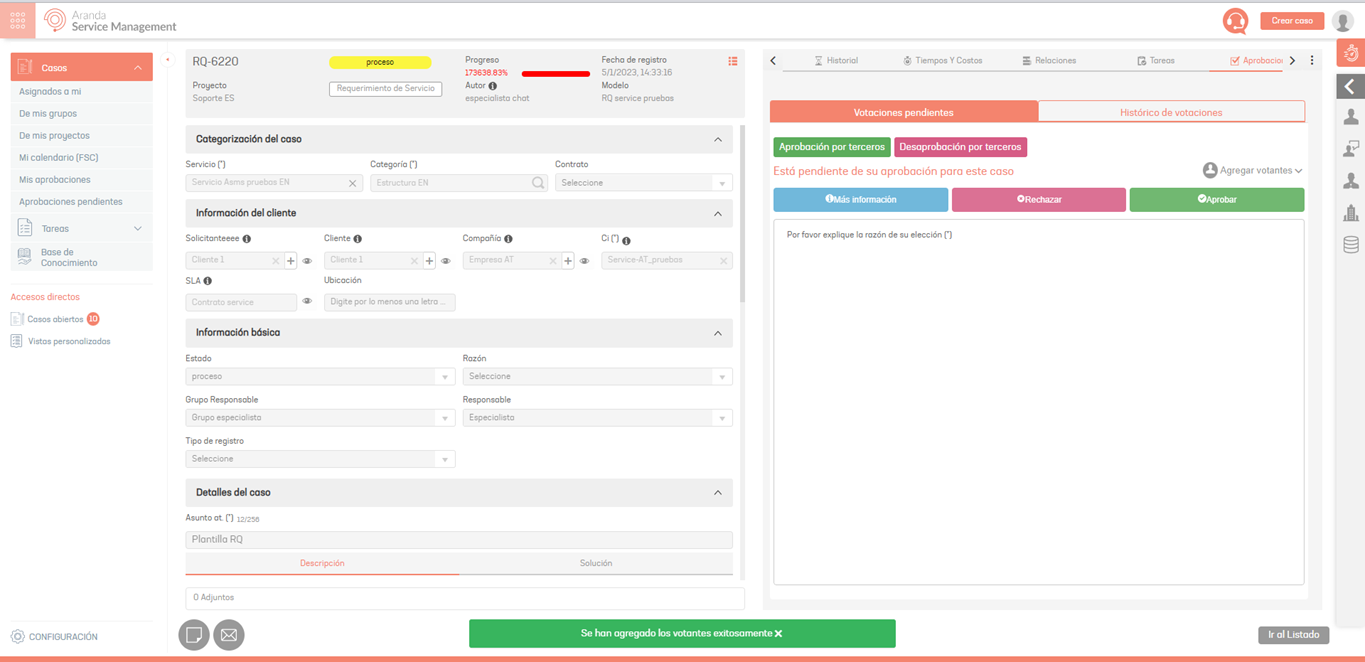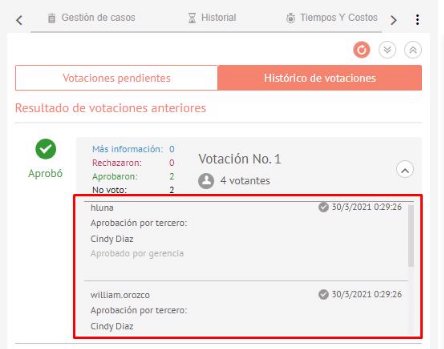- Approvals
The tab Approvals allows the specialist to vote to approve or reject status changes in cases of type Service Requirements, Changes and Releases, in the Pending Approvals tab it is possible to vote or view the list of voters associated with the voting process.

After voting, you can check the result of the vote in the tab Voting history or from the Tag VotingResult which is available in the Mail Tags options in the case or from the previous configuration, in the console ASMSAdministrator in the session Service Management > Mail Templates and/or Rules.

During the voting process, it is possible to add specialists manually to participate in the voting. To do this, in the search box, type in the name of the specialist, fill in the justification (which will be registered as an annotation to the case) and click on Add.

If you check the CI Managers, when doing the search, only the specialists responsible for the ICs that are associated or related to the case will be shown.
A confirmation message will be displayed at the bottom of the console.

Third-party approvals
A specialist who is not from the voting group may approve or disapprove a case, if assigned the role ThirdPartyApproval from the Admin console.

⚐ Note: When executing the vote, the case will be automatically approved/rejected regardless of the number and/or percentage of voters that are configured in the approval process. Once the vote has been applied, you will be able to view the user, the name of the third party and the justification of each of the specialists that were needed to approve or reject the case.

Third-party customer approval
When a case is in the status of approval by the client and the client has not yet responded to the survey or approval required, the specialist with the Customer Third Party Approval role will be able to vote on behalf of the customer from the corresponding console.

When executing the vote, the case will be automatically approved or rejected. Once the vote has been applied, the The user will be able to see in the voting history the name of the third party and the corresponding justification.



